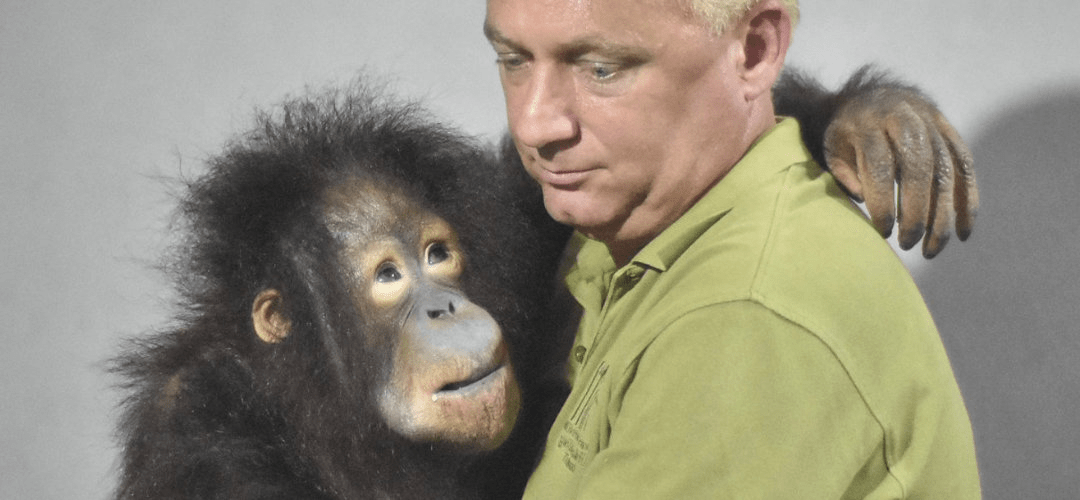Photo credit: Wildlife Friends Foundation
Interview with Mr Edwin Wiek, Founder and Secretary-General of WFFT (Wildlife Friends Foundation, Thailand). The interview took place in Phetchaburi on July 17, 2021.
According to the IUCN Red List, more than 8,000 animal species are threatened with extinction. One in four mammals and one in eight birds face a high risk of extinction. Road accidents, animal smuggling and exotic pets all contribute to the problem. While some animals are rescued, they are often traumatized or physically injured from captivity and cannot be released back into the wild unless they receive treatment. This is the mission of WFFT.
Q: What made you set up WFFT in the first place?
Well, I’ve lived in Thailand for 32 years. During the first ten years, I often went to the jungle, and I saw real wildlife for the first time. It was amazing. I did not know Thailand still had elephants, gibbons, leopards and even tigers. So, when you see them in the wild, you begin to appreciate their beauty. But I also saw people who kept wildlife in captivity, chained or in cages. It made me think, what happens when these people no longer can care for these animals and who will save them? It was just an idea at the time. Later, in 2000, I had a car accident and was lucky to survive. That made me rethink my life and was the trigger to start WFFT. It became my obsession, and using my business experience and knowledge of Thailand, my dream was realized. That is now 21 years ago.
Q: What has been your biggest challenge so far?
The biggest challenge is that whilst we work for the benefit of wildlife, authorities who are there to protect the forest as well are not always on our side. We want them to be on our side so we can work together. But this can be difficult at times, mainly due to corruption. Rich people that want to keep wildlife, for example, have a lot of influence. We are cautious to stay on the right side of the law because people often come up with false accusations and try to get you into trouble. So having to fight for the animals as well as the authorities and elites is our biggest challenge.
Q: So, how will you ensure WFFT can become sustainable?
The millennium development goals had recently been published when I started the foundation in 2000. I could see our foundations needed commercial activities to pay for our expenses to sustain our work. Asking for donations to survive is not sustainable. So, I started to raise awareness and have people visiting us to see and learn for themselves. We began inviting volunteers from all around the world. We added eco-tourism trips to the centre. We built lodges so visitors could stay with us and have the experience of living among rescued wildlife. To be more sustainable, I use the analogy of a table. If you only depend on donations, your table only has one leg and have to hold it up, or it will fall over. With donations and volunteers, we had two legs and more stability. Our income from tourism became the third leg. The more legs you have, the more stable your table becomes. And if you have more than three legs, you can afford to lose one leg and still be standing. That was the philosophy I adopted from the start, striving to find at least five or six different income streams. Due to COVID-19, we lost three legs at once (lodges, day trips and volunteers). But we are still surviving with the help of CSR, donations and grants. That is not sustainable, but I believe the country will open up again, and then we will be financially sustainable again.
If you found this article useful, please remember to ‘Like’ and share on social media, and/or hit the ‘Follow’ button to never miss an article.
About the Author: Daniel Lindgren is the Founder of Rapid Asia Co., Ltd. a social research and consulting firm based in Bangkok that specializes in evaluations for programs, projects, social marketing campaigns, and other social development initiatives. Learn more about our work at www.rapid-asia.com.

